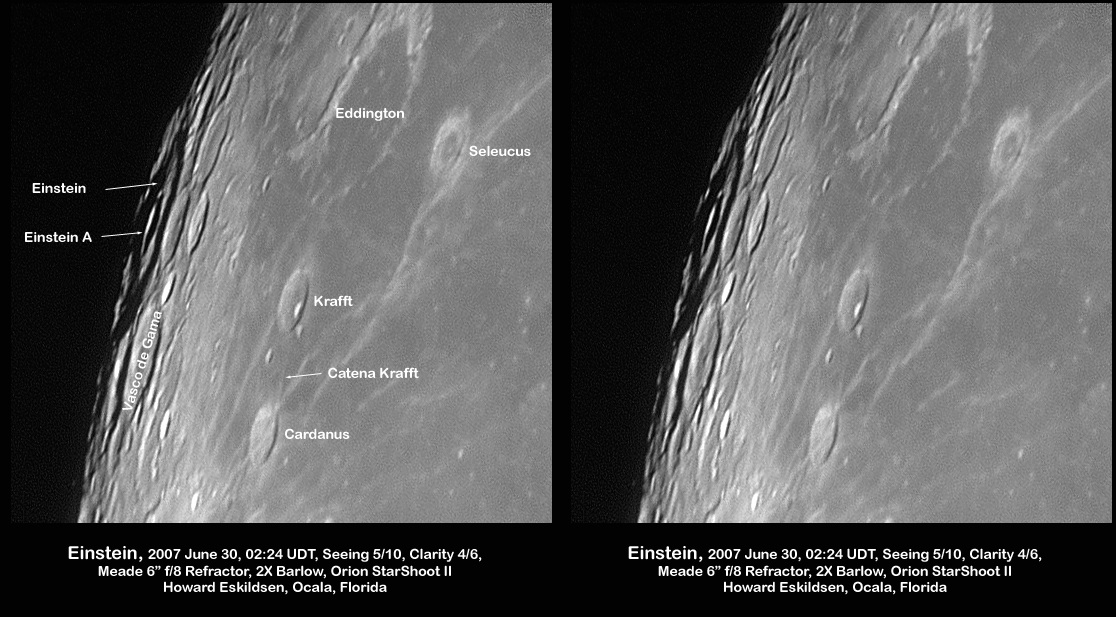
image by Howard Eskildsen, Ocala, Florida
Impact craters are concentric structures - there are ring within ring structures in impact pits a few hundred meters in diameter, in concentric craters (typically 4-10 km wide), and in hundreds of kilometers wide multi-ring basins. Howard has, knowingly, imaged a large nearly concentric structure that, unlike all the above, results from two random impacts. Einstein is 170 km in diameter and it’s large interior crater, Einstein A, is 45 km wide. A’s sharp rim, constrasting with Einstein’s battered one, is evidence that A is considerably younger than - and thus separate in origin from - Einstein. Because Einstein is nearly on the limb, its interior can only be seen when librations nod the western limb our way. This image shows Einstein in its regional mileau and how distinctive Einstein’s morphology is.
Technical Details:
June 30, 2007, 02:24 UDT. Meade 6″ f/8 refractor + 2X barlow + Orion Star Shoot II webcam.
Related Links:
Einstein in the-Moon wiki
Yesterday's LPOD: More Discoveries From the Vault
Tomorrow's LPOD: Almost Mud
COMMENTS?
Register, Log in, and join in the comments.



